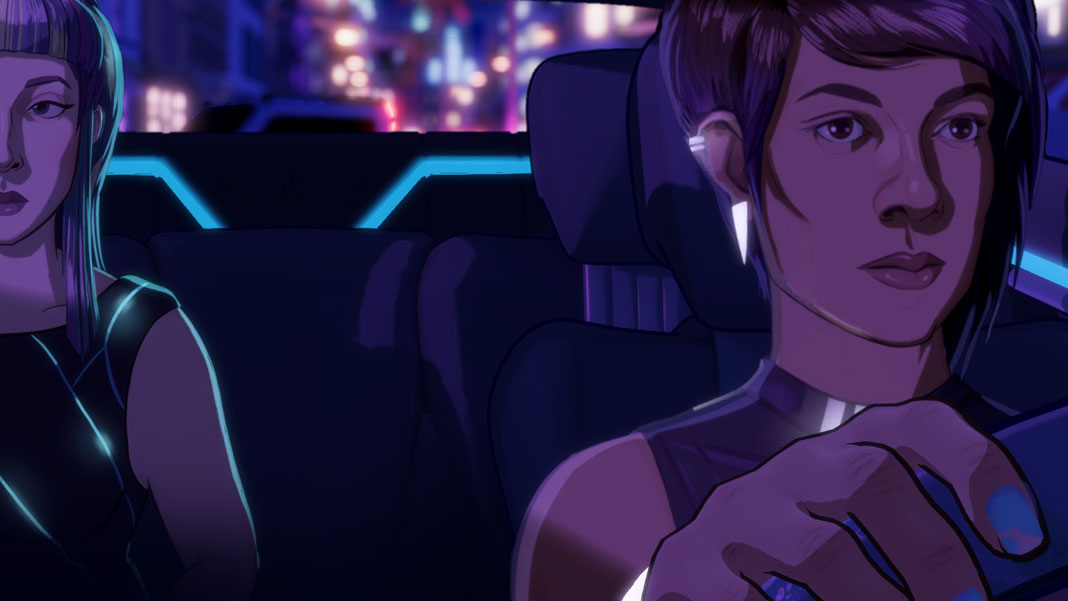While ridesharing giant Uber was announcing plans for commuter flight last week, Chance Agency kept their feet firmly on the E3 show floor. Here they presented Neo Cab, their own fictional take on the ridesharing experience. Published by Fellow Traveller and described as an emotional survival game, Neo Cab follows Lina, one of the few remaining human drivers in a sea of automated ridesharing cars.
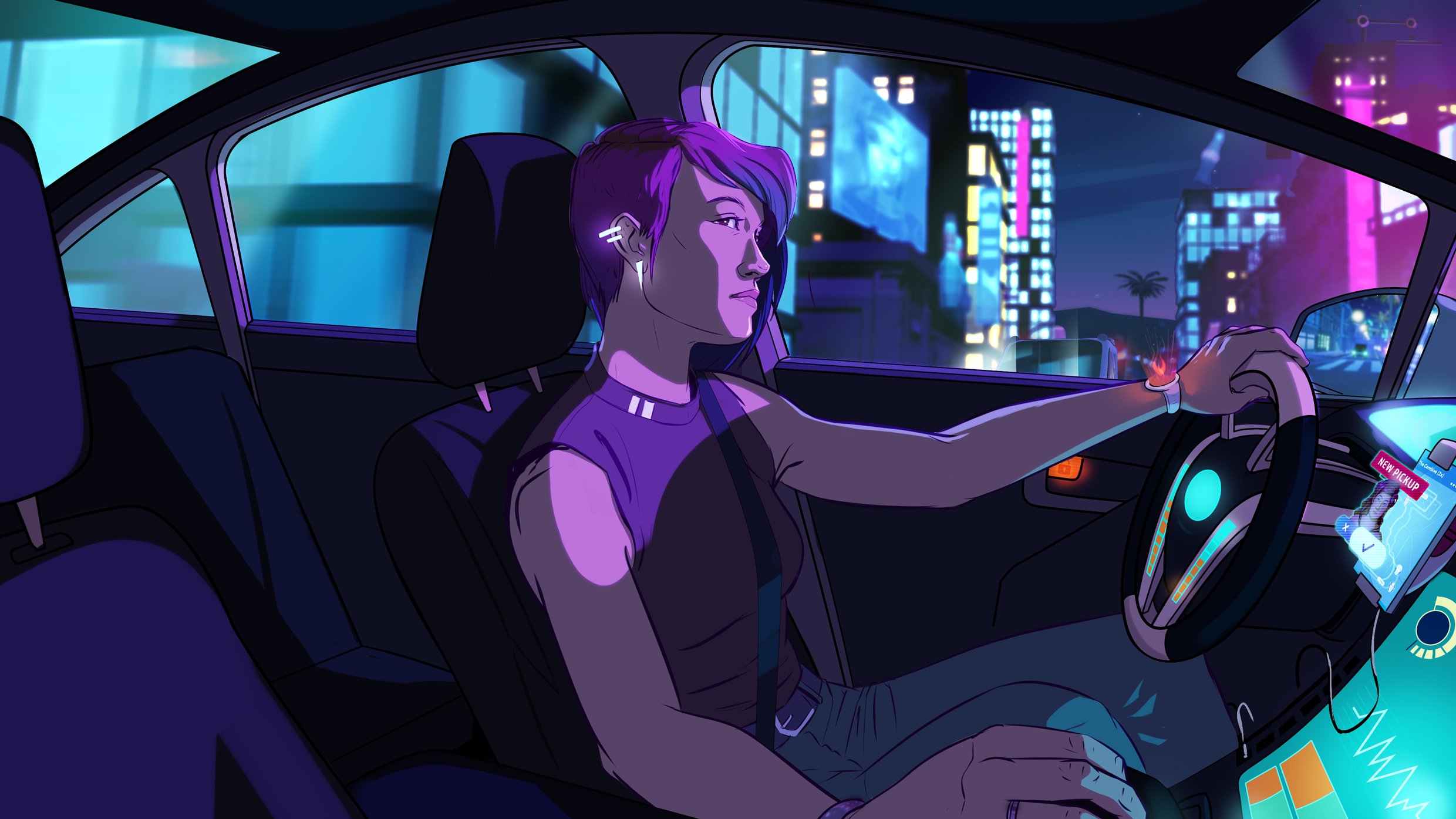
Lina starts the demo during her move to Los Ojos, a place she hasn’t even visited yet.
Chance Agency’s commentary on automation, Uber, and other businesses like it still carries weight even with Uber’s eyes on the sky, as CBS San Francisco notes that while Uber would start with pilots flying their aircraft, “the long-term plan would be to phase them out.”
According to Patrick Ewing, creative director on Neo Cab, the game explores the possibilities of technological growth happening too quickly without checks and balances. For instance, Neo Cab delves into huge job loss as a by-product of such rapid change. More importantly, it focuses on the emotional fallout of it all.
Captivating Voice
As a part of the IndieCade showcase at E3 2019, Neo Cab featured two demo experiences—a shortened version and a full playthrough of the game’s opening level. I opted for the full demo, which turned out to be a rich and engrossing experience. The game’s writing and narration gripped me like a sci-fi graphic novel. The story tracked Lina’s journey to her new home in Los Ojos, the game counterpart to the real-life Los Angeles. When her best friend, Savy, goes missing under alarming circumstances by the end of the demo, I was left wanting more
“I love stories,” Ewing said. “Think we all wanted it to be a story you could get lost in.”
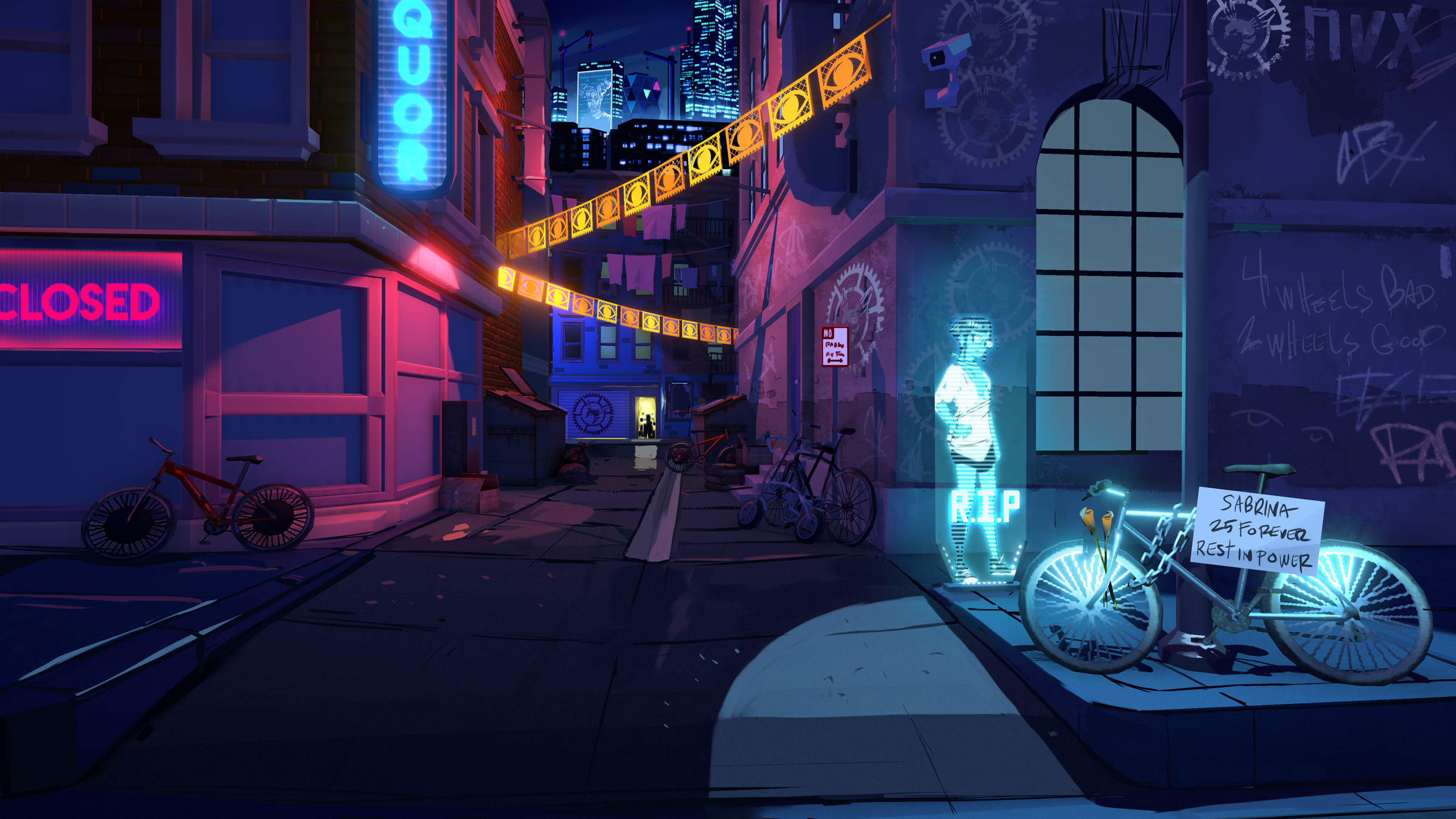
The Neo Cab story team consists of Robin Sloan, Duncan Fyfe, Paula Rogers, Leigh Alexander, Bruno Dias, and Kim Belair.
Ewing mentioned that while there are a lot of games with compelling worlds, oftentimes they lack interesting characters. This led to praise for the game’s writing team.
“Being able to write naturalistic dialogue that’s compelling and branching is no small feat,” Ewing said.
Interestingly, while players have branching dialogue options as Lina, you can’t always control how she’ll respond.
Emotional Boundaries
For instance, when idle conversation with a passenger strayed into more heated territory about fictional ridesharing giant Capra, I tried to take a more diplomatic approach. I selected what appeared to be the most tactful dialogue choice, but Lina refused to comply.
Lina could not say anything neutral about Capra in that moment, not after they had replaced her with an automated car. They had coldly discarded her, left her jobless until she found another ridesharing company that still employed humans.

On top of this was a nice touch of visual reinforcement. While the dialogue choice remained visible after that, it was flickering in and out, as if it was glitching. Lina was too angry to function the way I wanted her to.
Rather than being a hindrance, this was a gameplay mechanic that fascinated me. When asked if limiting dialogue options was about balancing player choice with making Lina a distinct character, Ewing said it was the result of multiple things.
A Glimpse at the Rideshare Driver’s Life
According to him, part of Neo Cab revolves around the rating that the rideshare driver gets from every passenger. Ewing explained that it was about being true to the experience of every Uber driver, “where you live and die by your rating.”
The game follows through on that, with Lina considering she can’t lose a star on her rating when weighing options on what to do. The mechanic is put to the test when Lina receives an additional request from a passenger she’s already agreed to pick up.
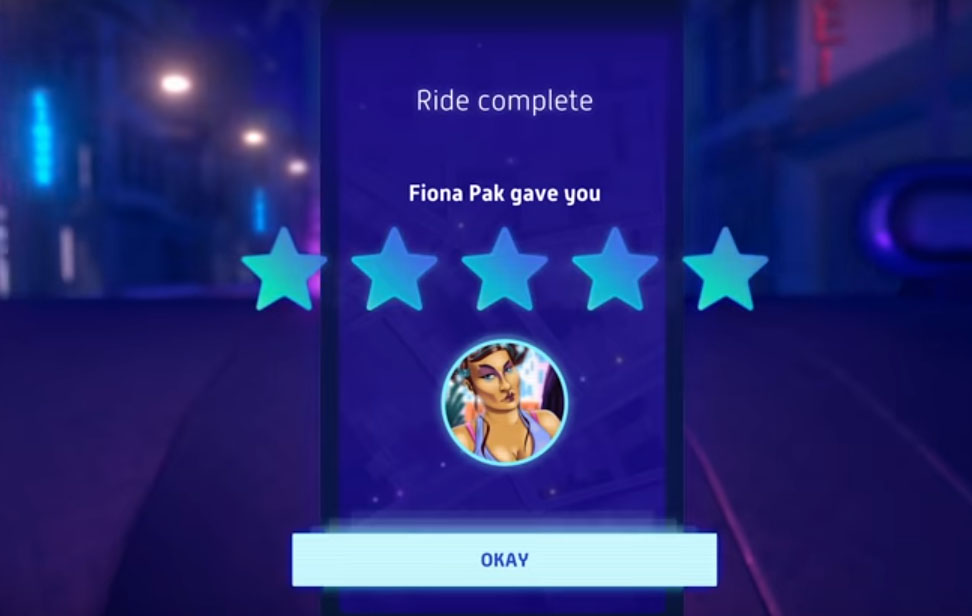
The passenger says she’s tired and asks Lina to stop somewhere closer. However, the passenger’s new meeting place is at a restricted location. If Lina parks there, she risks getting a ticket and a fine she likely can’t afford.
On the other hand, refusing the passenger could lose a star on her rating, another thing Lina can’t afford. If her star rating gets too low, her employer can essentially suspend her.
Given all that, I decide to have Lina comply with her passenger’s request and hope for the best. Lina is lucky this time. She picks up her passenger as requested without incident.
Just Trying To Get By
Lina eventually realizes her passenger, Allie, is a fellow gig worker—except her job involves spying on people for her employer. Realizing the uncomfortable effect she’s having on a Los Ojos newbie like Lina, Allie shuts off her surveillance equipment and apologizes. While spying is apparently common in Los Ojos, it’s an ugly shock to a newcomer like Lina.
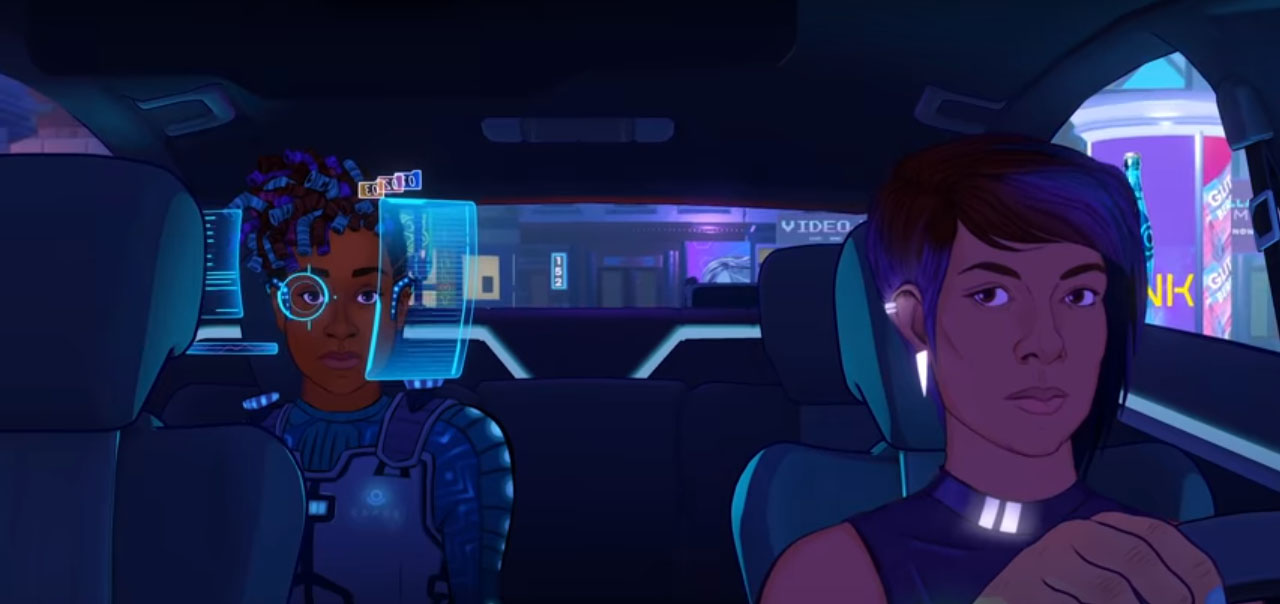
Lina doesn’t immediately realize that her passenger is wearing surveillance equipment.
Ewing pointed out that while Lina didn’t appreciate Allie spying on her, she understands. Much like herself, Allie is just doing what she needs to in order to survive a rapidly changing world. It also helps that Allie took direct action to rectify the situation when she stopped spying and apologized to Lina.
“We wanted to find that humanity. It’s not jerk cab,” Ewing said. “It’s about how systems put people in tough situations.”
According to Ewing, the team even looked to Papers, Please for inspiration on trying to do your job and be a good person while living under a difficult system.
Allie ultimately proved to be civil and considerate after a rocky start. That’s not the case with every passenger, in the game or outside of it.
“You can only be sweet and nice to people who treat you badly [for so long] before you explode,” Ewing said.
